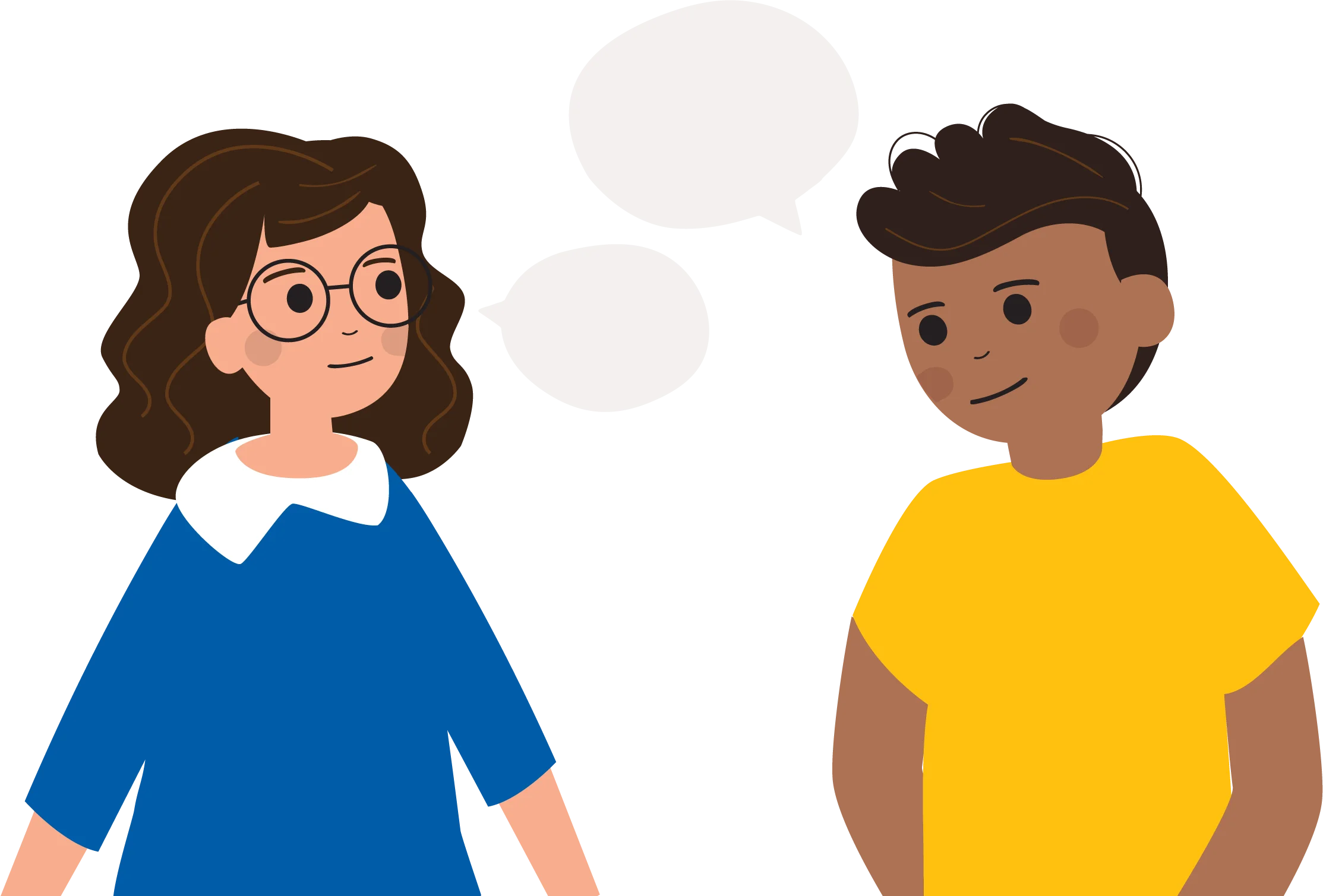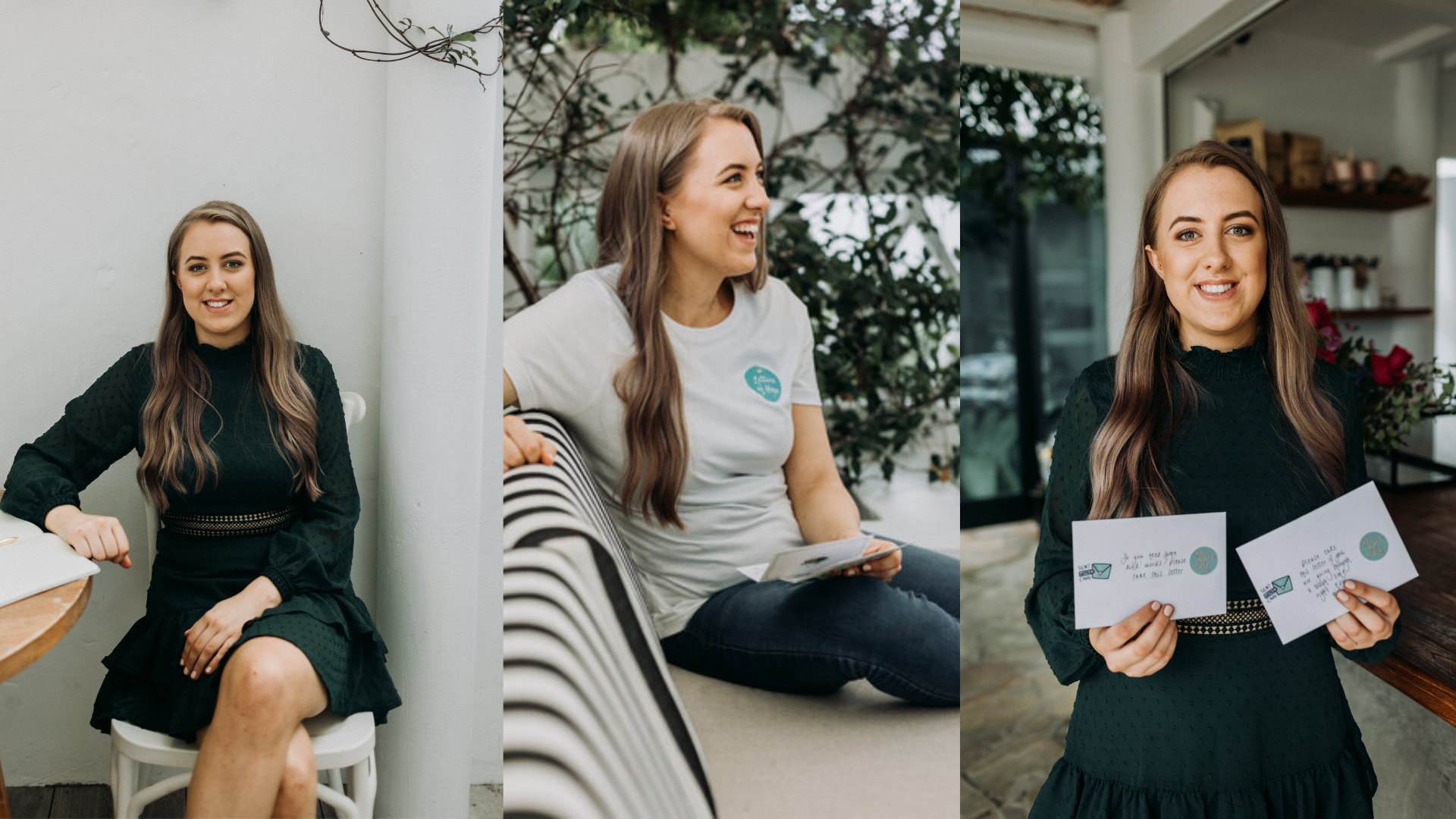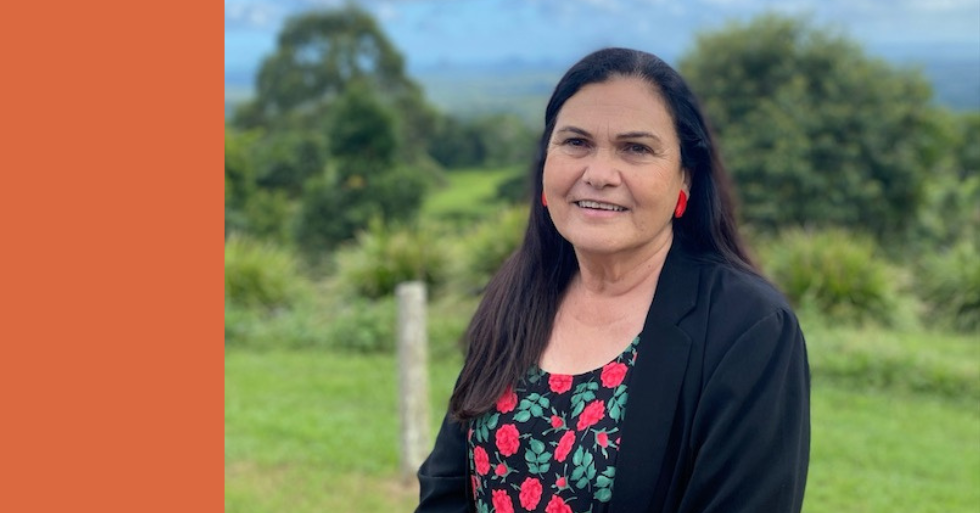In a world where social connections can sometimes feel fleeting, Abbie Williams has dedicated her last 10 years to engaging in – and teaching others to have – open, supportive conversations for those facing mental health problems.
As the CEO and founder of Letters of Hope, a mental health charity that sends handwritten letters to those in need, Abbie is using the power of connection to support mental health, recognising that open conversations are crucial to breaking down the barriers people face when seeking help.
Her journey, from navigating her own mental health problems to becoming an advocate, instructor and GC Young Australian of the Year 2024, has impacted the lives of countless individuals.
A journey of lived experience and transformation
Abbie’s path to becoming a Mental Health First Aider® (MHFAider®) and Mental Health First Aid® (MHFA®) instructor began with her own experience of anxiety. In 2015, while living in the UK, Abbie enrolled in an MHFA course, hoping to better understand her own mental health while also equipping herself with the tools to help others
“I was avoiding conversations about mental health out of fear of getting it wrong or making things worse,” she recalls. “I wanted to be able to have these conversations, but I didn’t know how.”
Her turning point came when she heard the course instructor share his own struggle with public speaking. “I remember thinking, ‘I could never do that,’ but also feeling inspired,” Abbie says. It was an important moment that planted the seed for a new direction.
Overcoming fear and embracing a new path
A few years later, Abbie found herself in a position to train as an instructor. “My fear of public speaking had improved, and I was ready to take on this new challenge,” she says.
Her passion for mental health advocacy only grew stronger as she connected her lived experience with the tools she was learning. “Through my own recovery, I wanted to use what I had learned to empower others.”
Since then, Abbie has delivered MHFA courses across a range of industries, including high-risk sectors such as veterinary care, which has one of the highest suicide rates. “It’s been inspiring to see how different workplaces tackle mental health and how eager people are to learn,” she shares.
“There’s this huge gap in people’s ability to start difficult conversations. Managers, in particular, want to help but fear overstepping or saying the wrong thing. MHFA helps bridge that gap.”
The ripple effect of MHFA
Abbie’s experience delivering MHFA training is filled with poignant moments of realisation and connection. “One of the most rewarding parts is seeing those ‘light bulb’ moments, when someone realises they now know how to have a conversation with someone they were previously worried about,” Abbie explains.
“I’ve had experiences where someone was able to use that knowledge the very next day. They came back the following morning and shared how they went through the three key actions to support someone in crisis and keep them safe. It’s amazing to see the immediate impact the training has, even after just day one.”
The impact of this training is also personal for Abbie. After being diagnosed with bipolar disorder in 2024, Abbie leaned into her own lived experience to further enrich the courses she delivers.
“Being vulnerable with the people I’m training helps to create a safe space. It encourages others to open up about their struggles too,” she says. “It’s in those moments that I see how powerful peer support can be.”
Letters of connection, care and hope
In 2018, Abbie took her passion for connection a step further by founding Letters of Hope. The initiative began after receiving handwritten letters from her grandparents that offered her emotional support during a difficult time in her life.
“That anticipation of receiving a letter, knowing someone cared – it had a huge impact on me. I wanted to give that feeling to others,” Abbie reflects.
What started as a personal endeavour has now grown into a global charity that has sent over 6,000 letters to 30 countries, with the help of more than 500 volunteers. “The letters come from a place of lived experience, and it’s been so heartwarming to hear how they’ve made a difference,” Abbie says.
“We’ve had people tell us that our letters saved their lives, and others have shared how writing the letters has been a healing process for them too.”
The success of Letters of Hope is closely tied to Abbie’s work as an MHFA instructor. Both initiatives aim to foster connection and support in ways that bridge the gap between individuals and professional care. Whether through a letter or a conversation, Abbie believes in empowering people to take action.
“There’s often a gap between the help seeker and professional care,” Abbie explains. “MHFA helps fill that gap by teaching people how to initiate those important conversations and guide others toward the support they need.”
Creating even greater circles of support
Looking ahead, Abbie envisions a future where MHFA training reaches even more people.
“I’m just one person. Imagine the ripple effect if we could reach more people. The benefits don’t stop with the people in the room – they extend out to their friends and family too.
“We’d see more lives saved and more people receiving the help they need. I think the statistics around help seeking would shift dramatically.”

Have a Story to share?
If you’re a Mental Health First Aider with a story to share, we’d love to hear from you.
Simply fill out the form below to share your details and our team will get in touch with you to discuss next steps.
Read Other Stories
Explore our other stories below or go back to the MHFA Stories page.
Sean’s story
Sean Ryan arrived in Australia as an international student in 2017, prepared for the challenges of navigating a new country and balancing university expectations with part time work, and finding his place in a new culture. Mental health wasn’t something he expected to think about, let alone talk about.
Dan’s Story
How burnout became a mission to help others It took an almost out-of-body experience during a meeting for Dan to recognise that his working hours were unsustainable. Burnt out and disconnected, he realised something had to change. Dan had been working in the...
Aunty Margaret’s story
Since becoming a Licensed Aboriginal and Torres Strait Islander Mental Health First Aid Instructor in 2017, Margaret has delivered courses across the country, including prisons, schools, big cities and remote communities. She is licensed to deliver the Aboriginal and Torres Strait Islander course, along with the program’s Youth Aboriginal and Torres Strait Islander, Talking about Suicide, Talking about Non-Suicidal Self-Injury, and Youth Yarns (pilot) courses. She also facilitates Certificate IV in Mental Health.
Learn about our training
Explore our range of course options to find the Mental Health First Aid training that’s right for you.






